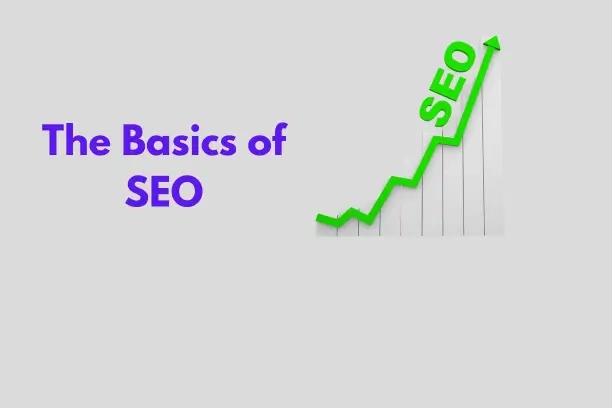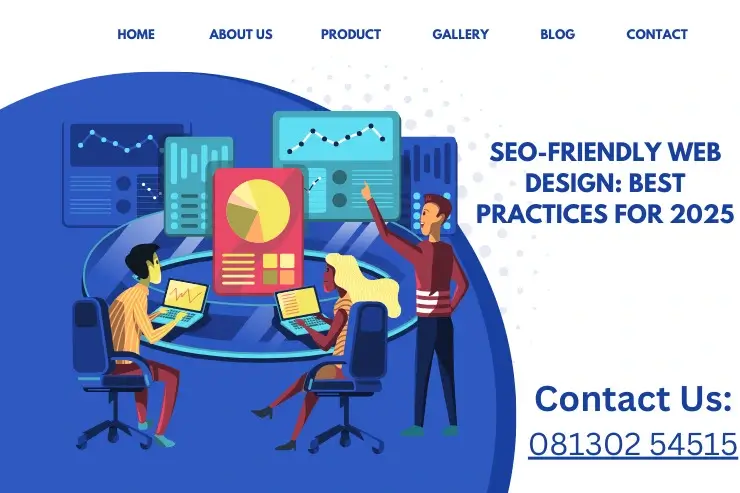SEO, or search engine optimization, is the technique of optimizing a website to improve its visibility and ranking on search engine result pages (SERPs). The goal of SEO is to improve your website’s ranking for specific keywords related to your content, making it easier for potential visitors to find your website.
Table of Contents
- Maximizing Your SEO Potential through Strategic Keyword Research
- On-page Optimization: for Better Search Engine Results
- Off-page optimization: building a strong backlink profile
SEO is important because it is one of the key factors that determine whether your website will appear on search engines like Google. If your website is optimized for search engines, it can appear higher in the SERPs, attract more organic traffic, and increase its visibility and credibility. The higher a website ranks, the more likely a potential customer is to visit that website.
In addition, a strong SEO strategy helps ensure that content is relevant, easy to navigate, and accessible to both search engines and users, thus improving the user experience of your website. You can. This earns trust and credibility from both search engines and users, which can lead to increased traffic, sales, and conversions.
The basics of SEO (Search Engine Optimization) are essential for any website that wants to rank higher in search results and attract more relevant traffic.
Here are some of the reasons why SEO is important.
Increased website traffic
SEO helps increase the amount of relevant traffic to your website by improving your visibility in search results.
Improved user experience
SEO can improve the user experience of your website by making it easier for users to find the information they are looking for.
Top ranking in search engines
Optimizing your website for search engines can improve your search engine rankings and increase your chances of appearing higher in search results.
Increased brand awareness
Appearing at the top of search results can increase brand awareness and establish your website as an authority in your niche or industry.
Improved ROI
SEO can improve your return on investment (ROI) by driving more relevant traffic to your website and increasing conversions.
Long-term benefits
SEO is a long-term strategy that can bring lasting benefits to your website and business even after the initial optimization work is done.
Competitive Advantage
Optimizing your website for search engines can give you a competitive edge over other websites in your niche or industry.
Maximizing Your SEO Potential through Strategic Keyword Research
Keyword research is an integral part of a successful search engine optimization (SEO) strategy. It’s all about finding and analyzing the keywords and phrases your target user is searching for and using those keywords optimizes the content and structure of your website. Here are some key points to keep in mind when doing keyword research:
Identify your target audience
Know who your target audience is and what they are searching for.
Use keyword research tools
Utilize keyword research tools, such as Google Keyword Planner, to find keywords and phrases related to your niche or industry.
Focus on long-tail keywords
Long-tail keywords, which are longer and more specific phrases, tend to have lower competition and can be more targeted.
Look for keywords with high search volume and low competition
Target keywords that have a high search volume and low competition to maximize your chances of ranking higher in search results.
Use keywords throughout your website
Incorporate keywords into your website’s content, title tags, meta descriptions, URL structure, and header tags.
Track your keyword rankings
Use tools to track your keyword rankings and monitor your progress.
By conducting thorough keyword research and using keywords strategically throughout your website, you can improve your visibility in search results and attract more relevant traffic to your site.
On-page Optimization: for Better Search Engine Results
On-page optimization refers to the process of optimizing individual web pages to rank higher and attract more relevant traffic in search engine results. The content and structure of your website should be changed to improve its relevance and accessibility for both search engines and users. Improve your website’s visibility in search results and make it more relevant by optimizing various elements of your web page, such as title tags, header tags, meta description, URL structure, content, internal links, and images. Can attract high traffic.
On-page optimization is an integral part of a successful search engine optimization (SEO) strategy and plays a key role in boosting your website’s ranking in search results. This section describes the elements of on-page optimization and provides tips on how to optimize your website for search engines. On-page optimization refers to the process of optimizing individual web pages to rank higher and attract more relevant traffic in search engine results. Here are some key points to keep in mind when performing on-page optimizations:
Title tag
The title tag is one of the most important on-page optimization elements. It should be unique and descriptive and include your target keyword.
Header tags (H1, H2, etc.)
Header tags help to structure your content and make it easier for search engines to understand the structure and hierarchy of your page.
Meta description
The meta description is a summary of your page that appears in search results. It should be clear, concise, and include your target keyword.
URL structure
The URL of your page should be clear and concise and include your target keyword.
Content
The content on your page should be relevant, high-quality, and include your target keyword. It should also be easy to read and understand.
Internal links
Internal links can help to improve the navigation of your website and provide search engines with an understanding of the structure of your site.
Image optimization
Images should be optimized for both search engines and users, with descriptive file names, alt tags, and optimized size.
Mobile optimization
Your website should be optimized for mobile devices, with a responsive design and fast loading times.
By optimizing these elements of your web pages, you can improve their ranking in search results and attract more relevant traffic to your site. It’s important to note that on-page optimization is just one aspect of a successful SEO strategy, and should be combined with other efforts such as link building and technical SEO.
Off-page optimization: building a strong backlink profile
Off-page optimization refers to various optimization techniques and tactics performed outside of your website to improve your website’s visibility and search engine rankings. A key aspect of off-page optimization is building a strong backlink profile. A backlink profile is a collection of links pointing to your girlfriend’s website from other websites.
Backlinks are one of the most important ranking factors used by search engines. As they indicate the popularity and relevance of a website. Building a strong backlink profile can increase your visibility in search engines, drive more relevant traffic to your site, and establish your site as an authority in your niche or industry. In this section, we’ll cover some key points to consider when building a strong backlink profile.
Quality over quantity
Backlink quality is more important than quantity. Focus on getting quality and relevant backlinks from reputable sources.
Relevance
Backlinks should be related to your niche or industry and the content of your page. Diversification:
Diversification
Diversify your backlink sources to reduce the risk of search engine penalties.
Anchor text
Anchor text used in backlinks should be descriptive and relevant to the content. Avoid generic phrases like “click here”.
Placement of links
Backlink placement is important because links in the body of your content are more influential than links in the footer or sidebar.
Natural Growth
Your backlink profile should grow naturally without excessive manipulation or artificial link building. authority:
Authority
Getting backlinks from authoritative websites can have a positive impact on your search engine rankings.
Building a strong backlink profile can increase your visibility in search engines. Drive more relevant traffic to your site, and establish your site as an authority in your niche or industry. However, it’s important to approach link building carefully and follow best practices to avoid search engine penalties.





